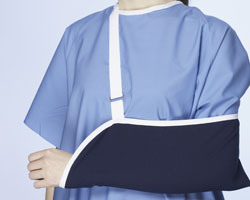 By Joe Forward, Legal Writer, State Bar of Wisconsin
By Joe Forward, Legal Writer, State Bar of Wisconsin
Sept. 2, 2010 – A worker, restricted by a physician’s order from engaging in certain activities at work, is nevertheless entitled to worker’s compensation if the employer asks the worker to engage in those activities, also knowing of the restriction.
In Pick’n Save Roundy’s v. Labor and Industry Review Commission, 2009AP2594 (Aug. 25, 2010), the a Wisconsin Appeals Court affirmed a Labor and Industry Review Commission (LIRC) decision that Pick’n Save employee Jill Lucchesi was entitled to worker’s compensation and other medical expenses that arose from her work as a cake decorator.
In 2000, Lucchesi developed carpal tunnel syndrome in her wrists from constantly squeezing the frosting tube that assisted her in decorating cakes. In 2001, she had surgery, and her doctor permanently restricted her from decorating cakes in the future. Lucchesi informed her Pick’n Save manager of the restriction.
Up until the spring of 2005, she worked as a bakery clerk. But when two of the store’s cake decorators left, the store and bakery managers asked Lucchesi to fill in. Despite the work restriction, Lucchesi agreed because she was not eligible for health insurance on the weekly hours worked exclusively as a bakery clerk. She filled in as a cake decorator for several months.
In 2006, the store again asked Lucchesi to fill in as a cake decorator, and she did so until experiencing wrist problems in early 2007. The problems led to a second surgery on both wrists. In her doctor’s opinion, the injuries and resulting 5 percent wrist disability, were directly related to her continued work as a cake decorator.
After the surgeries, Lucchesi filed a claim for worker’s compensation benefits, which Pick’n Save denied, based on the belief that Lucchesi’s injuries were self-inflicted.
Under Wis. Stat. section 102.03(1)(d), an employee is not eligible for worker’s compensation benefits if an injury sustained through work was “self-inflicted.”
The case went before the Wisconsin Department of Workforce Development, and an administrative law judge determined that Lucchesi was entitled to $15,553 compensation and ordered Pick’n Save to pay medical expenses. Pick’n Save appealed to LIRC.
LIRC determined that under section 102.03(1)(d), Lucchesi’s injuries were not self-inflicted and, therefore, Pick’n Save was not relieved from paying worker’s compensation or medical expenses. In LIRC’s view Lucchesi’s injuries were not self-inflicted under the statute because her managers, who knew of the restriction, asked her to return to cake decorating.
The circuit court upheld LIRC’s decision, and Pick’n Save appealed.
According “great weight deference” to LIRC’s interpretation of the statute, the appeals court held that LIRC’s interpretation was reasonable and affirmed.
The appeals court explained that the Worker’s Compensation Act compensates workers for work-related injuries, “regardless of poor judgment or negligence on the part of the employee.”
Although Lucchesi consented to continued cake decorating despite knowing of the restriction, the court explained that section 102.03(1)(d) exists to prevent fraud, defined as “a deliberately inflicted injury for the purpose of recovering worker’s compensation benefits.”
Lucchesi did not commit fraud because her injuries were not self-inflicted, the court concluded. Pick’n Save had notice of her restrictions, and asked her to work in spite of them. Thus, Pick’n Save caused the injuries and bears the burden of compensation, the court held.
The court also held that Lucchesi was not barred from recovery under section 102.42(6), which bars compensation if a claimant “unreasonably” refuses or neglects to follow medical treatment. Lucchesi was not barred, the court explained, because she “deviated from her medical treatment only at the behest of her employer, who had notice of her prior injury.”
